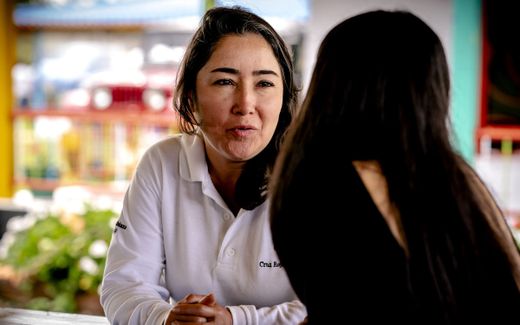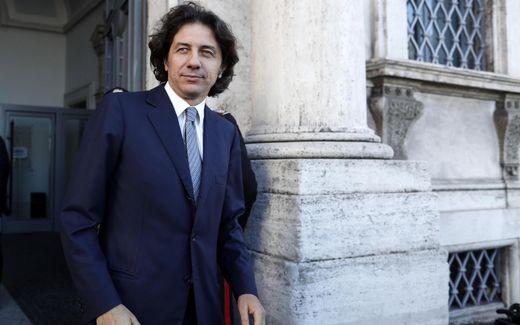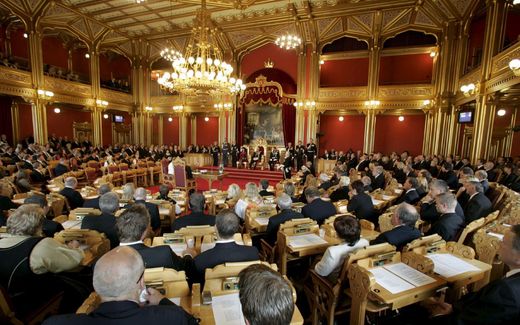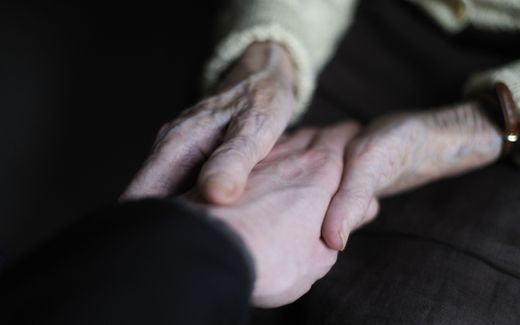Ukrainian Evangelicals are against Trump's approach on peace – and other news in CNE's podcast

CNE, Canva
European Union
NewsRound Europe is CNE’s news podcast. It has a bulletin with some remarkable news topics from the European continent.
Ukrainian Evangelicals are against the American plans
Evangelical Christians in Ukraine oppose any peace agreement that would give land to Russia, as it would worsen persecution in areas occupied by Russian forces.
Dr. Maksym Vasin, from the Institute for Religious Freedom, stresses that these Christians seek peace and freedom for all Ukrainians, including those in Russian-controlled regions, where many face violence and religious oppression. This was reported by the Christian Daily International.
Today, it is three years after the Russian invasion in Ukraine. In the past three years, Russian military forces have targeted churches, religious leaders, and believers, especially evangelicals, accusing them of being Western (especially American) spies. Thousands have been tortured, and many religious sites have been destroyed.
Vasin and others believe that the only way to restore religious freedom is by fully liberating Ukraine from Russian control. They also call for stronger action, such as designating Russia as a state sponsor of terrorism.
Ukrainian religious leaders, including those from the Ukrainian Orthodox Church, continue to resist persecution, citing their faith as a reason to fight.
Warning against antisemitism in Denmark
The general secretary of the Christian movement Ordet og Israel (Word and Israel), Ole Andersen, criticizes the passive attitude of both church leaders and the wider public in Denmark towards rising antisemitism.
In an op-ed in the Christian newspaper Kristeligt Dagblad, he points out that, after the October 2023 terror attacks on Israel, many people worldwide celebrated Israeli victims. In Denmark, incidents of antisemitism have increased, including verbal abuse, threats, and even attacks on Jewish individuals.
Despite political support for Danish Jews, church leaders have remained mostly silent, Andersen writes. He believes that church leaders should speak out against antisemitism, especially considering the church’s own history and its Jewish roots.
He urges them to stand up, as church leaders did during World War II, when they spoke out for Jews during the Nazi occupation of Denmark. He calls for action, emphasizing that hatred towards Jews is also hatred towards Jesus, who was born a Jew.
Backlash in legal fight against abortion pills in Poland
An appeals court in Poland has ruled in favour of the pro-abortion movement. The court ordered a re-trial of the case of a women’s rights activist who was convicted of providing another woman with abortion pills. The conviction from 2023 has been annulled.
The appeals court ruled that the judge in the original case was improperly appointed, making the court incorrectly composed. This means, the case will return to a lower court for a new trial.
In Poland, helping someone obtain an abortion can lead to a prison sentence of up to three years.
The convicted person helped a woman named Anna, who wanted an abortion but was forced to stay in Poland by her husband.
Her case has become a key legal battle in Poland, where abortion laws are very strict. Although a new government has promised to ease abortion laws, no changes have been made yet, due to internal coalition disagreements.
The American President Trump has announced he wants a study on the safety of abortion pills.
Dutch ban on conversion therapy seems off the table
The Dutch proposal to make conversion therapy for homosexuals illegal, seems to have no majority in the lower house.
Last week, the parliament would debate the private members bill. But one day before the debate, the Christian newspaper Nederlands Dagblad reported that essential parliamentary parties rejected the proposal.
Two centre parties (the Christian Democrats and the New Social Contract) hope to present an alternative plan instead. They argue that current legislation already forbids involuntary conversion practices and that a broader ban would be unclear and difficult to enforce.
The NSC criticizes the lack of clear definitions, like for "gender identity," and questions the value of the new law. CDA agrees conversion therapy should be stopped but finds the proposal ineffective and problematic.
Also the Freedom Party, led by Geert Wilders, is also unanimously against the bill, removing the majority needed for approval. Other parties, like Reformed SGP and ChristenUnie, also oppose it, fearing government interference in religious practices.
Experts argue, the bill is based on insufficient research, especially from outside the Netherlands.
Opposition in Tuscany appeals against assisted death
Tuscany's centre-right opposition has appealed against the region's assisted suicide law. Two weeks ago, the central part in Italy became the first region in the country to approve assisted suicide.
The statutory watchdog body will now have 30 days in which to rule on the appeal, during which time the law cannot be officially announced.
The region's governor has said that Tuscany will not become the new Switzerland, where some regions attract terminally ill people for their assisted death. The governor said that Tuscany will respect the strict conditions for euthanasia laid down by the Constitutional Court in 2019. Those requirements include the presence of an irreversible pathology, unbearable physical or psychological suffering and the patient's reliance on treatments of vital support.
The court also called on the national parliament to pass legislation dealing with end-of-life issues, something that it has not done so far.
The parties on the right of Italy's political spectrum are opposed to make assisted suicide easier, but there is a strong movement pushing for liberalisation.
Thursday church services in Sweden more popular than Sunday
In Fliseryd, a small village in Sweden, the local church has moved its Sunday service to Thursdays, and it’s been a big success. This is reported by the Christian newspaper Dagen.
The decision was made after a lot of discussion about whether to continue with the traditional Sunday service or try something new. The Lutheran congregation received special permission from the diocese to try this for a year, and the results have been surprising. Before, only about 12 people attended the Sunday service, but now, 30 to 40 people come on Thursdays.
This change has allowed both Fliseryd and Mönsterås churches to thrive without competing for attendance.
Activities are now held on Thursdays to attract more people. Experts see this as an important experiment, but they also worry that moving away from Sunday services could eventually affect church teachings. Despite the success, the church will continue to evaluate the new schedule.
Related Articles












